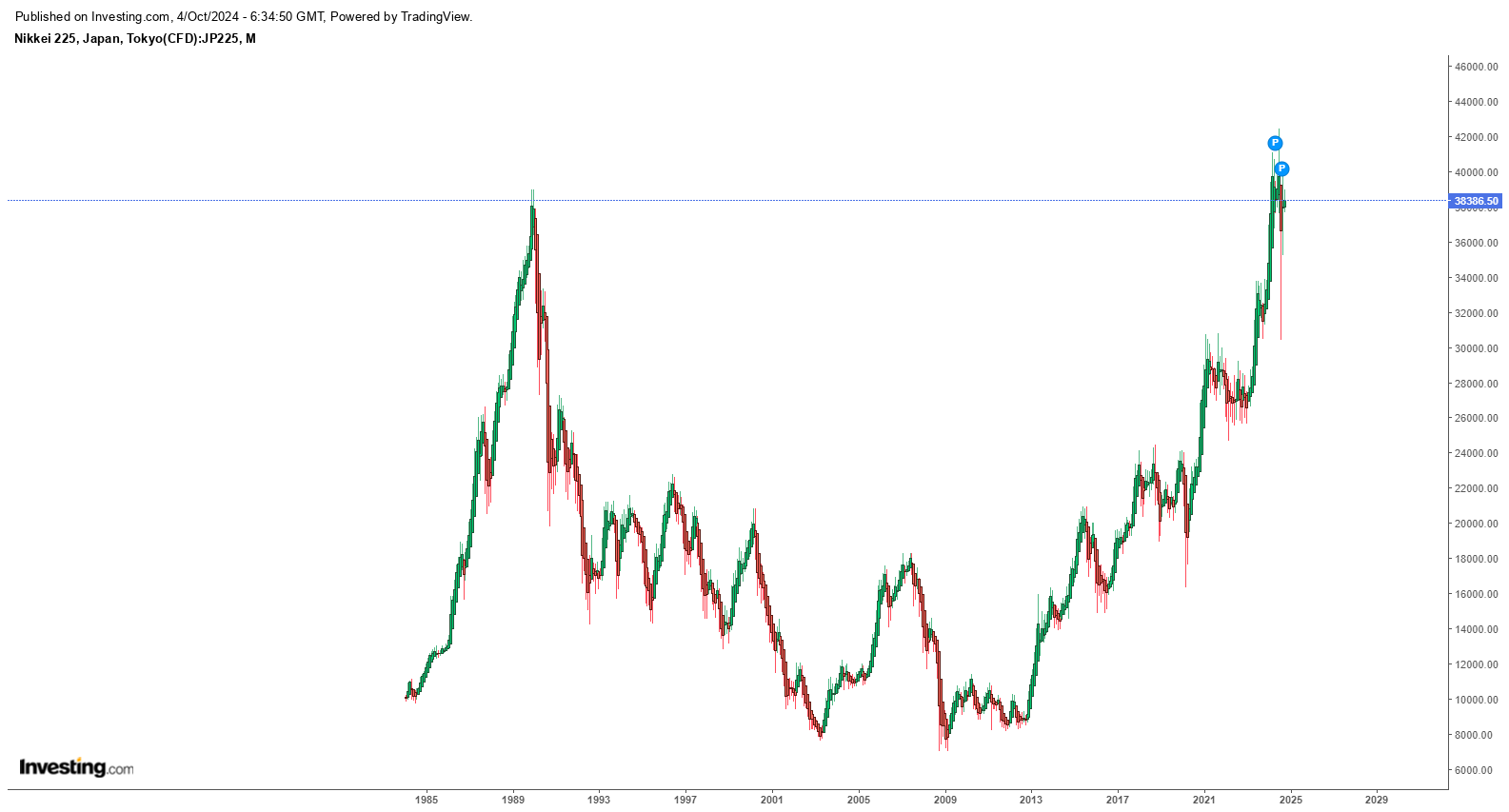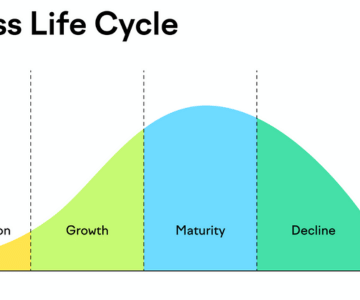
The term "Lost Decade" refers to Japan's economic stagnation in the 1990s following the collapse of the asset price bubble. During this period, Japan's stock market, once highly promising, suffered substantial losses and experienced a sluggish recovery. Notably, the Nikkei 225, Japan’s benchmark index, reached its peak in 1989 and subsequently plummeted by nearly half in just a few years. This experience prompts the question of whether similar occurrences could affect other economies.
Understanding the underlying causes of Japan's "Lost Decade" is essential before exploring the potential for similar situations in other economies. The primary contributing factors include:
1. Asset Price Bubble:
In the 1980s, Japan's real estate and stock markets became significantly overvalued due to speculative investments and loose monetary policies.
2. Collapse of the Bubble:
By the early 1990s, the burst of the bubble led to sharp declines in asset prices, a banking crisis, and widespread corporate debt defaults.
3. Deflation:
The collapse triggered deflation, diminishing consumer spending and investment, further exacerbating economic stagnation.
4. Demographics:
Japan’s aging population and shrinking workforce worsened the situation by reducing demand and labor force participation, contributing to prolonged stagnation.
5. Policy Responses:
Japan's monetary and fiscal policy responses were often slow or inadequate. While interest rates were reduced, deflationary pressures persisted. Additionally, government stimulus spending failed to reignite growth due to inefficient fund allocation.
Could such a scenario occur in other economies?
While Japan’s "Lost Decade" was influenced by the country’s specific economic structure and policies, the risk of prolonged stagnation is not exclusive to Japan. Several factors could render other economies susceptible to a similar scenario:
1. Overvalued Asset Markets:
Stock and real estate bubbles are not unique to Japan. Economies with rapidly inflating asset prices driven by speculation or excessive liquidity, such as the U.S. housing bubble in the mid-2000s or China’s current real estate market, could face similar downturns if these bubbles burst.
2. Monetary Policy and Debt Levels:
Japan's experience emphasized the perils of excessive leverage and inadequate management of monetary policy. Economies heavily reliant on debt to stimulate growth may find themselves in precarious positions if growth stalls or if interest rates rise sharply.
3. Demographic Challenges:
Many developed economies are grappling with aging populations akin to Japan's situation. Countries in Europe, China, and South Korea are contending with shrinking workforces and escalating social security costs, potentially leading to deflationary pressures and slowed economic growth.
4. Deflationary Pressures:
While Japan's deflation was influenced by the collapse of asset prices, other countries, particularly those struggling with low inflation and sluggish growth like the Eurozone, could face similar risks due to poor monetary or fiscal policy responses.
5. Policy Response to Economic Shocks:
The significance of swift and effective policy responses to economic shocks is a crucial lesson from Japan’s "Lost Decade." Central banks and governments have demonstrated willingness to intervene with aggressive measures, albeit delayed or insufficient responses could lead to prolonged stagnation, akin to Japan's experience.
Vulnerable Economies and Lessons from Japan's "Lost Decade"
Numerous economies face potential risks due to underlying economic vulnerabilities, although they are not predestined to replicate Japan's specific experience.
China, for instance, confronts the likelihood of overvaluation in its real estate sector, which could result in a substantial correction. The nation's substantial debt levels, coupled with demographic challenges arising from an aging population, bear resemblance to certain aspects of Japan's situation in the 1990s. Similarly, the Eurozone contends with low inflation, high debt in specific member states, and demographic challenges, rendering it susceptible to an extended period of economic stagnation in the absence of effective policy implementations. Meanwhile, South Korea, akin to Japan, grapples with an aging population and elevated levels of corporate debt. A severe downturn in global trade or a collapse in the real estate market could lead to prolonged economic stagnation.
Can these scenarios be prevented?
There are profound lessons to be gleaned from Japan's "Lost Decade" that could assist other economies in evading a similar fate:
1. Preventing Asset Bubbles:
Policymakers must vigilantly monitor asset prices and take measures to avert the emergence of speculative bubbles. This may encompass more stringent regulations on lending, enhanced oversight of financial markets, and more judicious monetary policy.
2. Proactive Policy Response:
In the face of economic downturns, timely and decisive monetary and fiscal policies are imperative. Central banks must act promptly to forestall deflation and stimulate growth, while governments should concentrate on well-targeted fiscal stimulus.
3. Structural Reforms: Structural reforms, including bolstering productivity, enhancing labor market flexibility, and fostering innovation, can aid economies in circumventing prolonged stagnation. This is particularly critical for economies confronting demographic challenges.
4. Demographic Planning: Countries contending with demographic decline should focus on policies that promote higher birth rates or immigration to sustain economic growth. Simultaneously, reforms to social security and pension systems can help alleviate the financial burden of an aging population.
Japan's "Lost Decade" serves as a cautionary narrative for other economies, underscoring the perils of asset bubbles, deflation, and ineffective policy responses. While certain economies may be more susceptible than others, it is not an inevitability that they will encounter the same fate. By assimilating insights from Japan's experience and taking proactive measures to manage risks, policymakers can avert the repetition of history and ensure enduring economic stability. Nonetheless, negligence in addressing these risks could result in stagnation in various parts of the world.
Gain valuable insights into your equity portfolio with our research reports. Contact aaron@neuralbahn.com to take your investment strategy to the next level.
www.neuralbahn.com




